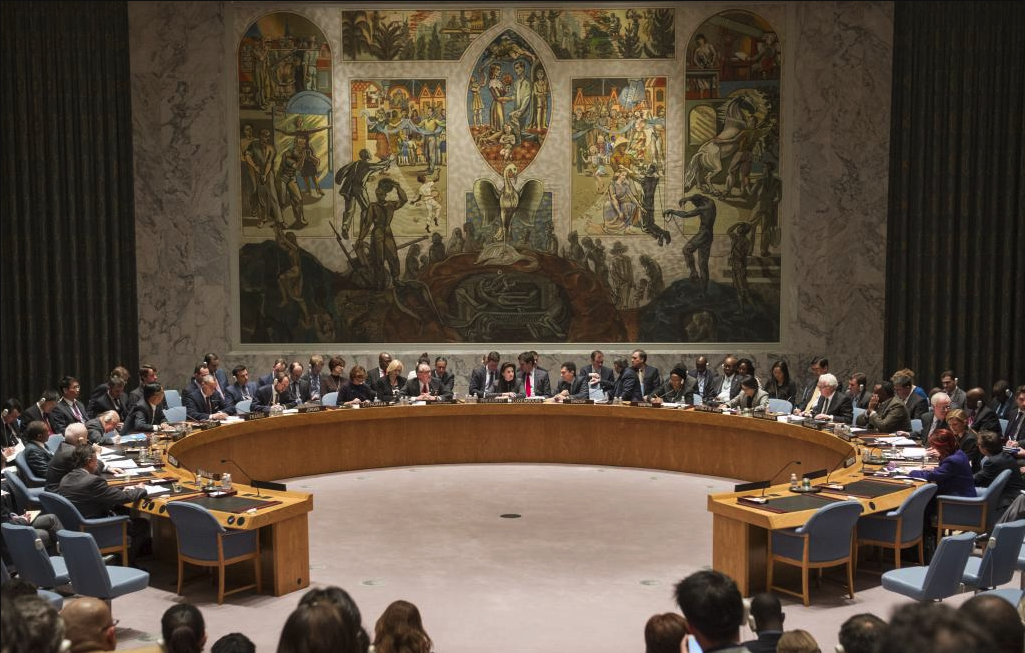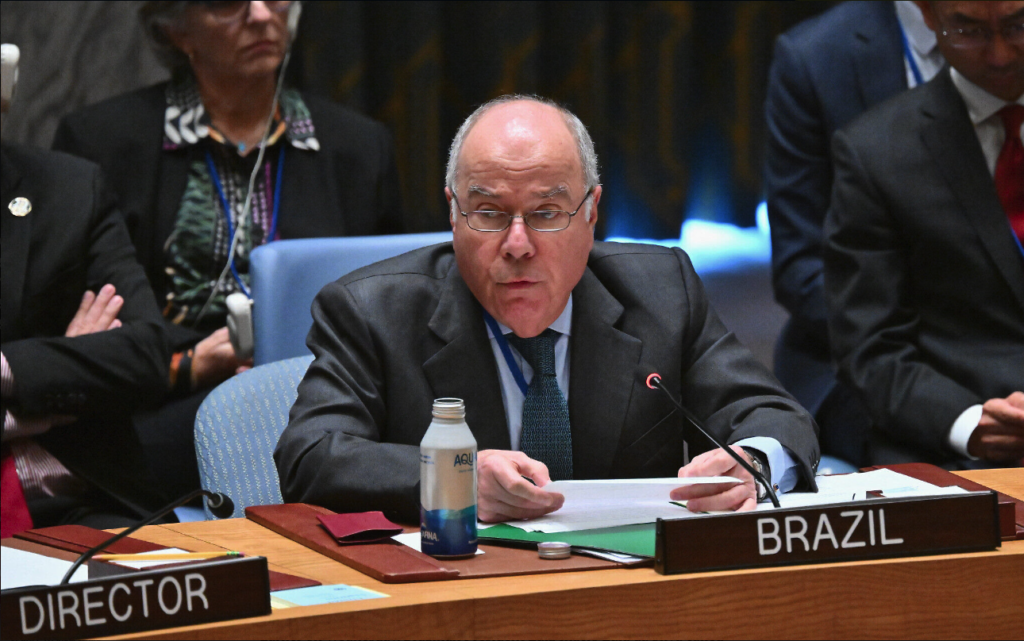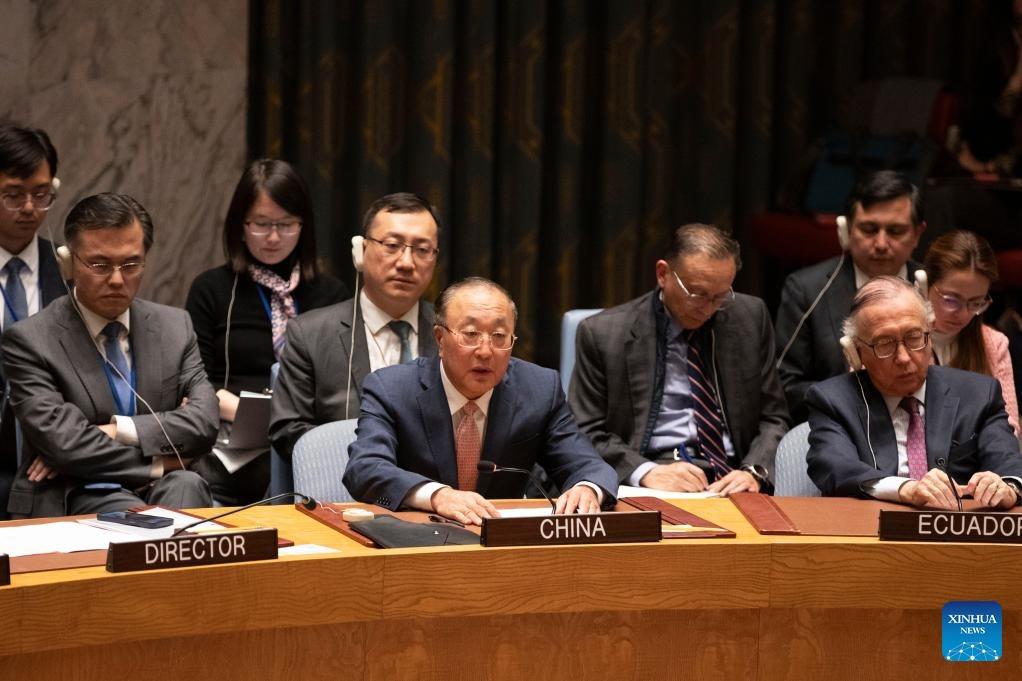
Published 03/11/2023 11:32 | Edited 11/06/2023 07:58
Brazil faced a diplomatic challenge of major proportions when assuming the rotating presidency of the UN Security Council, in the midst of one of the biggest contemporary humanitarian crises: the conflict between Israel and the Palestinian people. Despite this, the pacifist position of most countries was evident, and the isolation of the USA and Israel in their unilateral support for the continuation of the massacre. This is the view of journalist Wevergton Brito Lima, leader of Cebrapaz (Brazilian Center for Solidarity with the People and Struggle for Peace), and political scientist Flávia Loss, from the Faculdade Escola de Sociologia e Política de São Paulo (FESPSP), in a statement to the Red Portal.
Wevergton emphasized the need for a balanced stance when leading the Council. Brazil assumed the presidency of the UN Security Council at a delicate moment, in the midst of one of the biggest conflicts in Palestine, characterized as one of the biggest crimes against humanity.

“Just as Brazil assumes the presidency of the UN Council, one of the greatest crimes against humanity occurs. Because what is happening in Palestine is a war by Israel and the United States against the Palestinian people, taking on characteristics of genocide, extermination and ethnic cleansing.”
Read also: Brazil criticizes Security Council paralysis and defends ceasefire
Flávia offered a positive assessment of the country’s performance in this important international scenario. According to her, Brazil demonstrated alignment with the fundamental principles of its foreign policy, notably the search for the peaceful resolution of disputes and pacifism. One of the highlights was Brazil’s rapid response to the conflict that broke out in Gaza, right at the beginning of his presidency. The country convened permanent and non-permanent members of the Security Council and placed the conflict on the agenda, which demonstrated agility and proactivity.

“We did a good job and I’ll explain why. First, we were within the pillars of Brazilian foreign policy, which is the peaceful resolution of disputes and we did that very well. As soon as the conflict broke out, on the 7th, shortly after we assumed the Presidency, on the 1st, Brazil moved quickly to call the permanent and non-permanent members, putting what had happened on the agenda. This agility in response was very interesting,” he said.
The veto impasses
Professor Flávia highlighted, however, that the presidency of the UN Security Council is a bureaucratic and ephemeral role, which changes monthly, limiting the ability of any country to resolve major international problems in a month. Furthermore, she pointed out that the Security Council faces profound challenges in its own structure, such as the veto mechanism of the great powers and the need to expand the representation of other regions of the world.
Read also: Lula calls for an end to the right of veto in the UN Security Council
“The country that holds the Presidency calls the meetings, sets the agenda, the most important issues, and only has one month to stay in this role. So it is illusory that we can actually do something big, something that actually solves a problem”, she says.
She adds that, seen in context, the council itself is full of structural problems, as President Lula pointed out. It was evident, in her opinion, that the issue of the veto of the great powers with a permanent position, the P5 (USA, Russia, China, United Kingdom and France), is a mechanism that is very disruptive and needs to be changed.
“The very issue of expanding permanent members, to have more representation from other regions of the world, is an important reform”, he adds, criticizing the post-Second World War configuration, which remains despite the profound historical changes that have occurred in geopolitics and economy. “Countries in the global south are asking for more seats, the non-permanent members, of which there are 10, have also been bothered and pushed this agenda. Therefore, there are very deep problems in the structure of the Security Council itself that needs to be changed, but this will take a long time, if we are going to achieve it”.
Read also: Attack on hospital in Gaza postpones UN Security Council meeting
Resolution against the massacre

Brazilian Foreign Minister Mauro Vieira speaks to the Security Council at the UN headquarters in New York City.
In this delicate context, in the journalist’s opinion, Brazil sought a balanced and fair stance, fighting for a resolution that would guarantee a lasting ceasefire and the end of the blockade in Gaza, allowing the entry of humanitarian assistance and the functioning of UN agencies. . “More than balanced, Brazil had a fair stance, because the essence of Brazil’s stance, all along, was to build a resolution on the US pressure to unilaterally condemn the Palestinian resistance and endorse practically everything Israel is doing in terms of crime and massacre,” said Wevergton.
He also considers that Brazil faced significant obstacles, mainly due to the veto power of the United States. As Wevergton observes, the USA “took a stance in favor of the massacre”, while Brazil defended a contrary position.
Despite the challenges and difficulties encountered, in his opinion, Brazil handled the issue skillfully, obtaining the support of the majority of the Council, except for the United States’ veto and some abstentions.
Read also: UN Security Council meeting ends without agreement
According to Flávia, Brazil did what it could, within a month, by presenting a resolution that sought a humanitarian pause in the conflict, which did not amount to a ceasefire. Although the Brazilian resolution was not approved due to a veto from the United States, the expert considered that this initiative represented a small victory for the country.
She criticized the fact that the US claimed that the resolution did not explain the “US right to defense”. “The right to defense is already in the UN charter, in chapter 7, article 51. It was questioned whether or not it needed to be included in a resolution that only asked for a humanitarian pause. It wasn’t even a ceasefire that Brazil was asking for,” she analyzed.
The text of the Brazilian resolution received 12 votes in favor, two abstentions and one veto. These numbers reflected countries’ stance on the conflict in Gaza and demonstrated that most countries were interested in a humanitarian pause to provide aid to the suffering civilian population.
Read also: Brazil convenes UN Security Council meeting on conflict in Palestine
Despite being failed, in her opinion, the Brazilian resolution represents a small victory by demonstrating the countries’ position in relation to the conflict. “The position of the countries, for the most part, was for a humanitarian pause, they want the siege on the Gaza Strip to end, they want the minimum resources to reach that civilian population that is suffering a lot”.
Flávia emphasized that the UN, despite its limitations, is the only forum that sheds light on humanity’s problems and exposes the position of nations, which is important from a diplomatic point of view. “In this case, the United States was isolated, using its veto power to prevent a humanitarian pause. These things are very important from the point of view of international diplomacy and the interests of powers”.
Sometimes China

Zhang Jun (center), China’s permanent representative to the United Nations, speaks at the United Nations Security Council meeting in New York.
Flávia recalled that China has already taken over, announcing its priority for the conflict and expressing a position very similar to that of Brazil. She believes that by being a permanent member, perhaps China will have a stronger voice. She highlighted the fact that the Chinese diplomat added to the ceasefire the boldness of bringing the issue of the Gaza Strip to a debate on the two-state solution.
Read also: US may rush resolution to the Security Council under Brazilian mandate
Wevergton believes that China can try to mediate the situation and pursue a resolution similar to the one Brazil sought. However, Wevergton only sees China’s hope of achieving a resolution as long as the global outcry against the conflict reaches a point where the political cost to the United States becomes too high.
“China will try to pursue, I believe, a resolution with the same essence that Brazil tried to pass. And it will continue to be blocked by the United States, until this enormous outcry — which is rising around the world, in the streets, in different ways, even in diplomatic circles — assumes such proportion that the political cost for American imperialism becomes too high. And then he has to do a push-up”, he pondered.
With China assuming the presidency in November, Flávia highlighted that the Asian nation shares a similar position to Brazil in the conflict in Palestine and is pursuing a more ambitious agenda. China also condemns the violence on both sides and, therefore, intends to advance negotiations, even within a month of its presidency, in search of solutions for peace. Finally, she expressed her hope that China will be able to advance negotiations and make progress.
Source: vermelho.org.br

